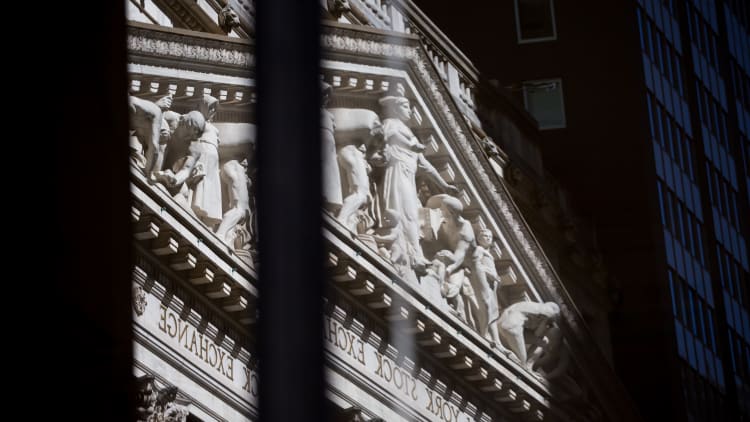
The bond market threw up another red flag on Wednesday.
The 3-month/10-year yield curve further inverted with the shorter-term yield at its highest above the longer-term since the financial crisis. This spread is often used as an indicator of recession, highlighting investor sentiment about the economy.
Five experts weigh in on the move and what to watch now.
Jim Paulsen, chief investment strategist at Leuthold Group, says the bond market is now one of the most important factors in investor confidence.
"I might even put the bond market as the primary thing that investors are worried about at this point above the trade war. I think that's kind of where we've gotten to now. … It just keeps falling even in the face of economic news which hasn't been all that bad. It's been mixed at worse and the stock market is wondering what does the bond market know? … Bond yields fell in 2010, 2012, 2014 to 2015 and in 2017 for several months while stocks were going up and so it's not much different today and I think all that is stimulus for a better stock market down the road."
Andres Garcia-Amaya, founder and CEO at Zoe Financial, says bonds are steering the market conversation right now.
"There's two drivers: one is the international pressures when it comes to global growth not being what it was before and the other one is just the trade tensions. We have touched on this before which was a couple weeks back — yields started to fall yet the equity market continued to rally and my question is one has got to give. It seems like bonds are telling the story a little bit stronger and now equities are beginning to fall rather than the other way around."
Matt Maley, equity strategist at Miller Tabak, says it's too early to call any conclusion until the entire yield curve inverts.
"That 3-month to 10-year inversion is steeper than it was back in March, so that's a concern, but the 2-year, 10-year spread, which is another one that people look at it hasn't inverted yet. It's getting closer. So you like to see basically the entire curve invert before it really shows signs that we're going to have a recession going forward, but it hasn't been a very good indicator. And the thing about this whole situation is we were already seeing some signs that the economy was starting to slow a little bit even before the breakdown in the trade talks took place, especially in groups like the semiconductors stocks. So it is something that I just think that the markets — both the bond and stock market — were planning for a lot of certainty in the second half and we're certainly not getting that now with the change in the trade deal."
Mark Vitner, senior economist at Wells Fargo Securities, says the next round of economic data is critical.
"The trade uncertainty hits overseas economies much more than it hits the U.S. and I think that's particularly true in Germany. Certainly the elections over the weekend didn't help things in Europe. That clouds the picture even more, but I think that's the story there. It puts a low ceiling on how high our rates can go and I really think that in the next few days we're going to see some numbers that are really critical. The ISM number that comes out on Monday, if that falls below 50, historically the Fed has cut when we've had the ISM above 50 so expectations are for a small rise because we had seen some improvement in the comparable ISM numbers, although the market numbers that came out last week were just terrible."
Michael Gapen, chief U.S. economist at Barclays, says the U.S. economy isn't tapped out yet.
"We are less levered to global trade … the rest of the world is feeling it a little more than we are. I think there's more virtuous cycle to go, meaning I think we can get more employment, more consumption to get us through this. I do think risks are certainly tilted to cuts."





